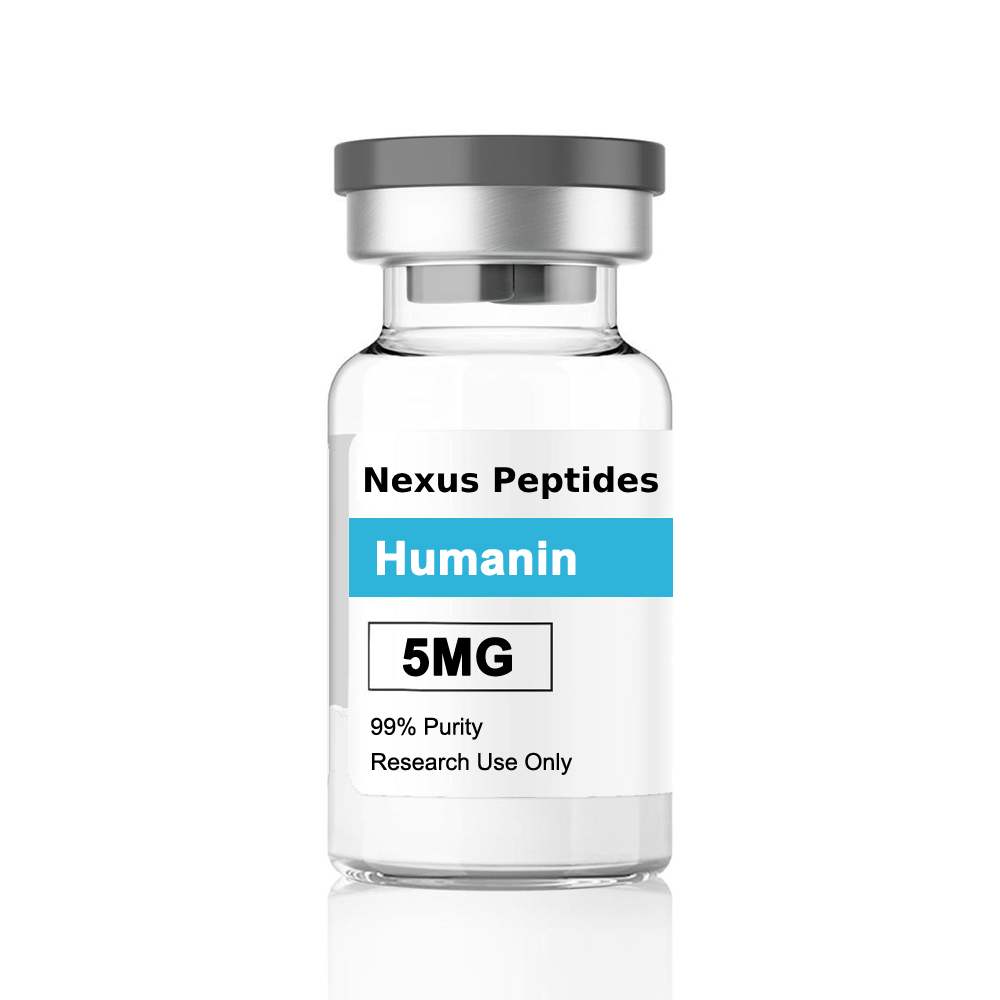Nexus Peptides
Humanin: 5-10mg*10 vials
Humanin: 5-10mg*10 vials
Couldn't load pickup availability
Share


Product Description: Humanin
Introduction
Humanin is a small peptide that has garnered significant attention in scientific research due to its unique properties and potential functions. This naturally occurring peptide consists of 24 amino acids and has been identified as a mitochondrial-derived peptide (MDP). Researchers have utilized synthetic Humanin in controlled environments to study its interaction with cellular processes, providing valuable insights into peptide-based mechanisms.
What is Humanin?
Humanin is classified as a mitochondrial-derived peptide, indicating its origin from the mitochondria’s small open reading frames. Its sequence is encoded within the 16S ribosomal RNA gene of the mitochondrial genome. Humanin has been studied extensively for its role in cellular communication and its interaction with receptors that influence intracellular pathways.
Potential Different Names
- Mitochondrial-Derived Peptide Humanin
- HN Peptide
- Humanin-24
Chemical Formula
C261H411N72O79S1
Structure
Humanin is a linear peptide composed of 24 amino acids. Its primary structure is crucial for its biological activity, as specific residues allow it to interact with cellular receptors and proteins. The peptide adopts a helical conformation when binding to its targets, which contributes to its specificity and functionality.
How Does It Work?
Humanin’s mode of action involves binding to specific receptors on the cell surface, including the Formyl Peptide Receptor-Like 1 (FPRL1) and the CNTF receptor complex. These interactions activate intracellular signaling pathways that regulate various cellular processes.
Research into Humanin has highlighted its role as a peptide capable of modulating molecular signaling. Its activity is linked to pathways that involve transcription factors, phosphorylation events, and protein-protein interactions. Researchers utilize synthetic Humanin to study its receptor binding properties, enabling a deeper understanding of peptide-based cellular mechanisms.
Conclusion
Humanin stands out in peptide research due to its unique mitochondrial origin and potential interactions with cellular signaling pathways. As a synthetic peptide, it provides researchers with the ability to explore peptide-receptor interactions and mitochondrial functions in controlled laboratory settings.
Disclaimer
Humanin is strictly intended for research and laboratory use only. It is not approved for diagnostic, therapeutic, or clinical applications. This description is for informational purposes and does not constitute medical advice. Proper handling protocols and regulatory compliance should be observed during its use in research contexts.


